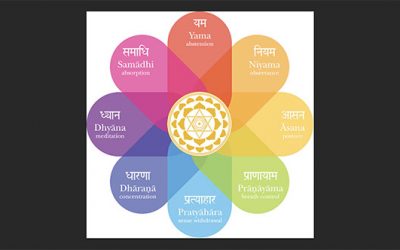In the early 1970s, I was in the dance department at the University of California, Berkeley, and right when I passed from my apartment to the campus, there was the Integral Yoga Institute. I went in there, long story short, to take a Yoga class. The postures were...
Raja Yoga Now: The Master’s Touch
It was in September 1970 that I first met my spiritual master. It was a time when many great Gurus were being drawn to the West, attracted by the awakening aspiration of the youth. Several hundred of us had gathered at a rustic site in the mountains of California for...
Finding the Joy in Self-Discipline
Question: Why do Yoga practices appear as disciplines when they are the source of joy? Yoga practices don’t appear as discipline—they are discipline. And who said that a disciplined life is an unhappy life? This seems to imply that discipline doesn’t make us joyful....
Faith and the Crystal Clear Mind
In children, the mind is pure. It is the world that goes in and contaminates our mind, otherwise, the mind is always plain and pure, like a crystal. No mind is bad, no mind is dirty; it’s always crystal clear. But it is the proximity of the mind to other things that...
The Yamas and Niyamas
Deborah Adele says that the yamas and niyamas (the ethical precepts that are the first two foundational limbs in Patanjali’s eight-limbed system of classical Yoga) offer us tools to help us stay centered in the midst of the ups and downs of life. She’s written a book...
Helpful Hints for the Practice of Yama and Niyama
The first two limbs of Raja Yoga are called yama and niyama. They consist of five precepts each and constitute the ethical foundation of Yoga. Sri Swami Satchidananda said: “All spiritual life should be based on these principles. They are the foundation stones without...
Yama & Niyama: A Psychospiritual Perspective
Maharishi Patanjali prescribed inner and outer purification as a prerequisite for pursuing the path of Yoga. Yama, or the five abstinences, might be described as enlightened self-control. Niyama, or the five observances, might be defined as self-regulation. In this...
Patanjali’s Raja Yoga
Patanjali’s Yoga system is written in sutras. A sutra is a terse verse. It is an aphoristic saying. It is pregnant with deep, hidden significance. Rishis of yore have expressed philosophical ideas and their realization in the form of sutras only. It is very difficult...
Meditation for Self-Mastery
Meditation starts with concentration. Meditation actually begins when the mind is well-focused and it learns to become totally still. When the mind becomes completely still it seems to be losing itself. That is what you call transcending the mental state. All...









